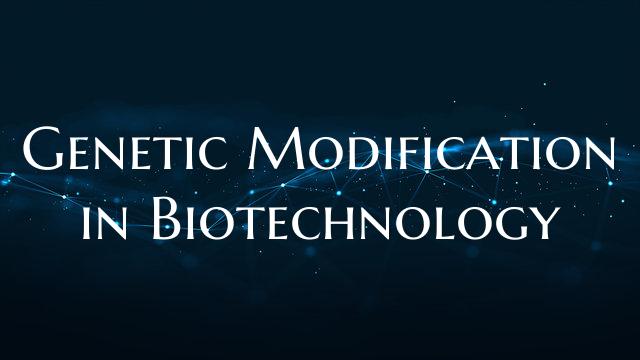Genetic Modification in Biotechnology
Genetic modification, also known as genetic engineering, has revolutionized the field of biotechnology by enabling scientists to manipulate the genetic makeup of organisms to achieve specific outcomes. This powerful technology involves the alteration of an organism's DNA to introduce desirable traits or remove undesirable ones. The applications of genetic modification in biotechnology are vast and have the potential to address various challenges in agriculture, medicine, and environmental conservation.
One of the most well-known applications of genetic modification in agriculture is the development of genetically modified organisms (GMOs) that are resistant to pests, diseases, or herbicides. These modified crops not only increase agricultural productivity but also reduce the need for chemical pesticides, promoting sustainable farming practices. Genetic modification has also been used to enhance the nutritional content of crops, such as adding vitamins or increasing protein levels to address malnutrition in developing countries.
In the field of medicine, genetic modification holds great promise for the treatment of genetic disorders and the development of new therapies. Researchers are using genetic engineering techniques to create genetically modified cells that can be used in gene therapy to treat diseases like cancer, cystic fibrosis, and muscular dystrophy. Additionally, genetically modified bacteria and other microorganisms are being developed to produce insulin, vaccines, and other pharmaceuticals more efficiently and sustainably.
Genetic modification is also being applied in environmental biotechnology to address pollution and ecological challenges. For example, scientists are engineering plants that can absorb heavy metals from contaminated soil, a process known as phytoremediation. This environmentally friendly approach helps to clean up polluted sites and restore ecosystems without the need for harsh chemicals or expensive cleanup methods.
Despite its many benefits, genetic modification in biotechnology also raises ethical and safety concerns. Critics argue that genetically modified organisms may have unknown long-term effects on human health and the environment. Therefore, rigorous testing and regulation are necessary to ensure the safety of genetically modified products before they are released into the market.
In conclusion, genetic modification has transformed biotechnology and has the potential to address a wide range of challenges facing society today. By harnessing the power of genetic engineering, scientists are pushing the boundaries of what is possible in agriculture, medicine, and environmental conservation, paving the way for a more sustainable and innovative future.

